What does the future hold for health and science?
Five of UC San Francisco’s emerging leaders offered their unique, forward-looking perspectives during Chancellor Sam Hawgood’s State of the University address last month.
Representing each of UCSF’s professional schools, the diverse group shared their thoughts and emerging experience on the multitude of opportunities ahead in redefining scientific discovery, education and care delivery over the next decade, both at UCSF and beyond.
Meet the leaders
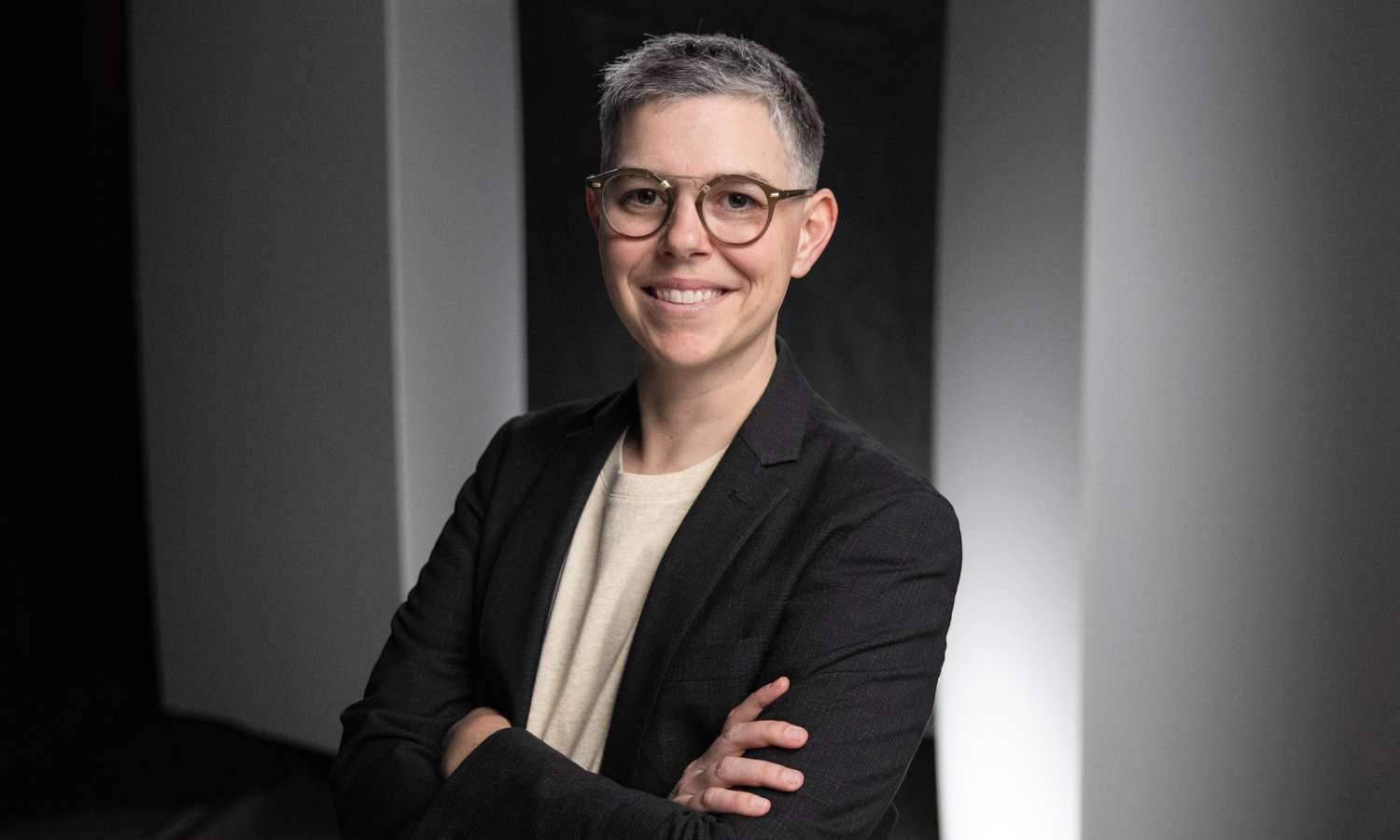
Taylor Cuffaro, RN, NP
PhD Candidate
UCSF School of Nursing
Taylor Cuffaro, RN, NP, is “obsessed” with nursing.
“I have to say I’m completely biased,” they joked.
Cuffaro made the decision to become a nurse after spending time researching substance use with the San Francisco Department of Public Health, seeing nurses working at the highest levels in unforgiving environments.
“I knew that as I continued my career, being able to stay in contact and be in close connection with community was critical,” Cuffaro said. “That’s why I chose nursing and UCSF. All of the people that I so admired in nursing, the vast majority were UCSF graduates.”
Their passion for street-based care only flourished at UCSF.
For folks who are traditionally left out, how do we adapt evidence-based care, not just to meet the needs, but to be really meaningful?”
Cuffaro joined a group of School of Nursing students in launching the Street Nursing Program in 2019 – an initiative designed to alleviate the challenges faced by those experiencing homelessness through education, care and research. The program was featured on the school’s “Illuminating Health” podcast.
“UCSF was really good at giving us a ‘yes’ and the ability to be creative, innovative, to think outside the box,” Cuffaro said. “I think probably another institution wouldn’t have been as good as UCSF was in allowing these students to start a practice.”
The initiative was ultimately integrated into UCSF Health.
A predoctoral scholar in the Next Generation Nurse Scientists Ending the HIV Epidemic program at UCSF, Cuffaro is working to improve care for gender and sexual minority patients and for unhoused patients, two groups disproportionately impacted by HIV. Cuffaro is strong believer in the role of nursing as a leader in community-based health care and helping to build evidence-based models of care to meet the needs of unhoused populations and other disenfranchised communities.
“For folks who are traditionally left out, how do we adapt evidence-based care, not just to meet the needs, but to be really meaningful?” Cuffaro asked. “It’s not just about accessibility, it’s about meaningfulness.”
When it comes to nursing in 10 years, they see the Bay Area community benefitting from more experienced voices in the room. “I think of really championing the diversity in nursing,” Cuffaro said. “How do we make sure that nurses are at the table for policy decisions? We have advanced practice, we have bedside nursing, we have public health nursing. There’s just so many ways to nurse.”
In acting as strong and willing advocates for their patients, Cuffaro believes nursing has a unique role to play now and moving forward.
“I think that UCSF has an incredible opportunity to change the way that health care works,” they said of the next decade. “We really need to think about a system that isn’t indoors, that isn’t housed in these traditional hospital and clinic settings. One that works for a lot of people. And the innovation has to continue in that realm.”
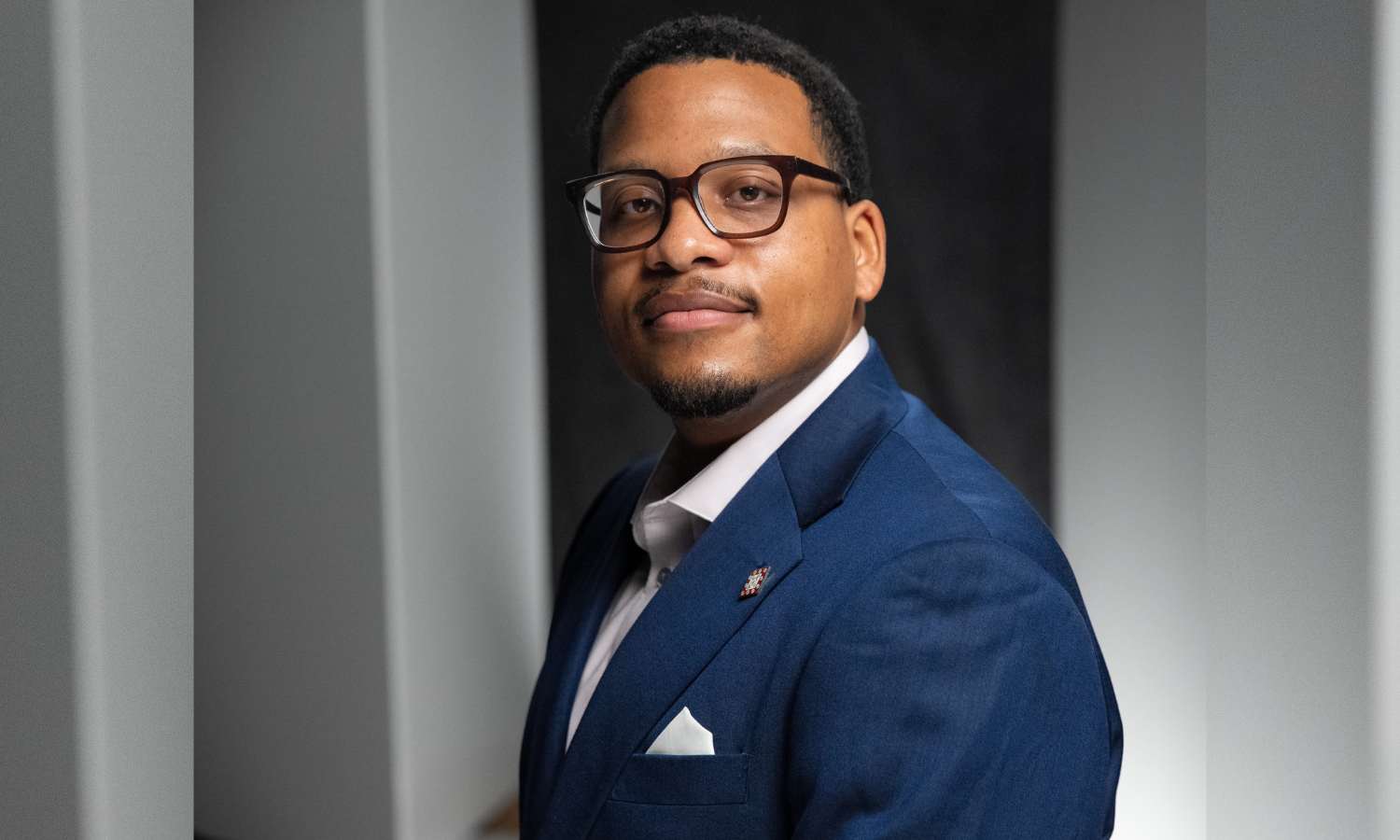
Jaysón Davidson
PhD Candidate
UCSF School of Pharmacy
As a former starting linebacker and team captain at Hampton University, Jaysón Davidson is used to making snap decisions.
These days, his life as a fifth-year PhD candidate in the UCSF School of Pharmacy’s Pharmaceutical Sciences and Pharmacogenomics program is a little less physical, but just as demanding in solving the problems that plague health care.
“I’m just so grateful to be at UCSF because I am surrounded by leaders in the health care space and in my field that are driving innovative change in health care, and creating an impact for patients now and in the future. Being surrounded by these high-level thought leaders allows me to become a visionary myself.”
Guided by Atul Butte, MD, PhD, University of California Health System chief data scientist, Davidson intends to use clinical informatics to develop methods to effectively stratify the differences in disease and drug response outcomes between populations with different social determinants to improve health care.
Being surrounded by these high-level thought leaders allows me to become a visionary myself.”
“In 10 years, I imagine a more fair and equitable health care system for patients,” he said. “It’s our duty to mitigate bias in the data that we have and be able to identify and ask questions that not only affects the majority of the population, but also affects minority and underserved populations so that they can also receive the care that they need regardless of any circumstance.”
As the president of UCSF’s Black Excellence in STEM (BE-STEM), Davidson joined Christina Stephens and Sydney Williams receiving the 2023 Chancellor Award for Dr. Martin Luther King, Jr. Leadership for student outreach, community building and professional development work with BE-STEM.
Davidson finished second at the UCSF Grad Slam competition in 2023 for his presentation, “Improving Health Equity Bit by Bit.” He’s also built computational models to analyze data, finding that diabetes patients from lower-income neighborhoods were prescribed cheaper, possibly less effective treatments, and waited longer to visit the doctor than patients from higher-income neighborhoods.
It’s those types of technologies that will help reduce health disparities, he said.
“I see in the future that we’re not only engaging with community leaders but we’re also being able to have scientists from every community,” Davidson said. So, increasing the diverse representation of scientists that we have will make a major impact.”
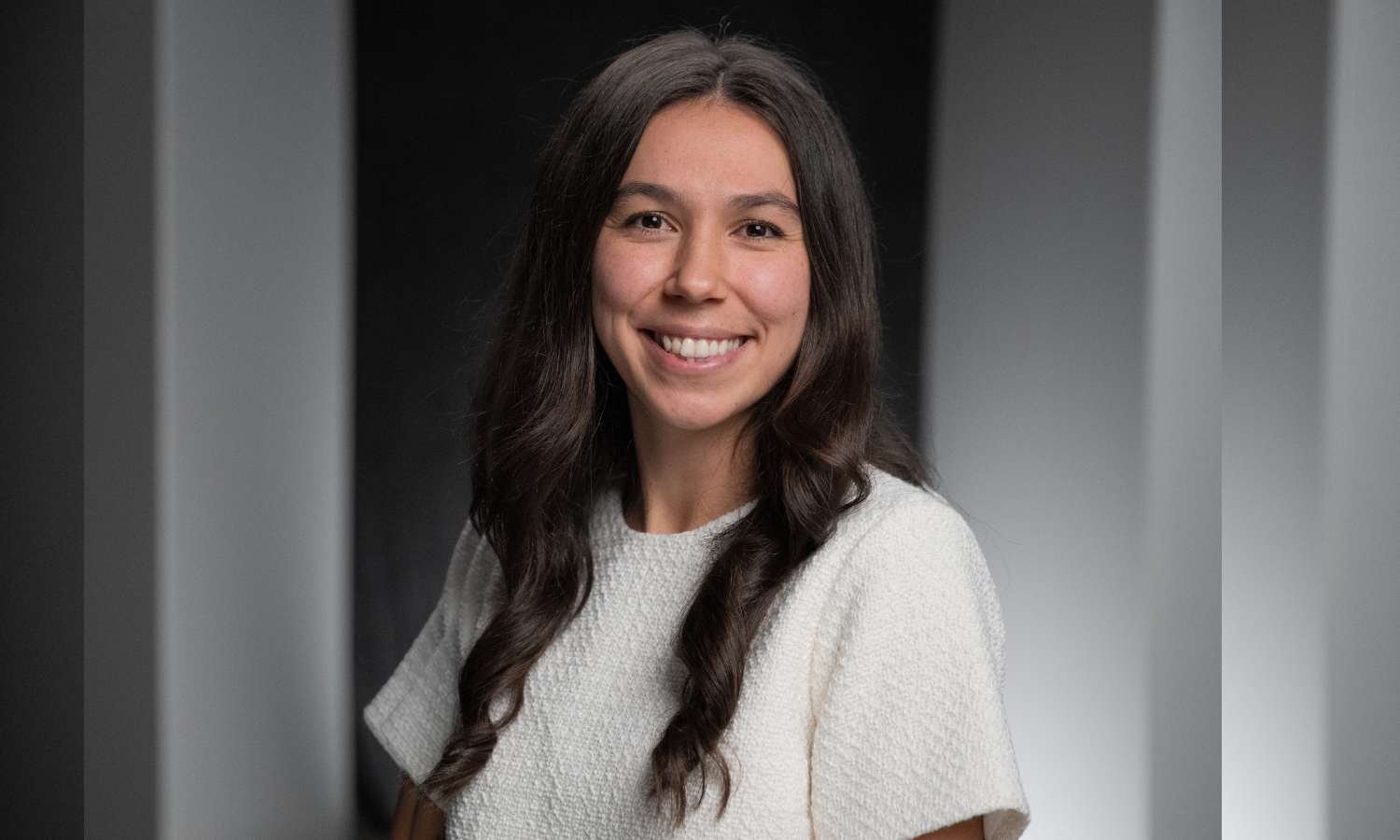
Alli Gomez-Ojeda
Student, San Joaquin Valley Program in Medical Education
UCSF School of Medicine
Home is where the heart is. For Alli Gomez-Ojeda, that’s California’s Central Valley.
Born and raised in Turlock, Calif., Gomez-Ojeda earned her undergraduate degree in biological sciences from UC Santa Barbara before joining UCSF’s San Joaquin Valley Program in Medical Education.
Seeing health disparities throughout the socioeconomically disadvantaged Central Valley inspired Gomez-Ojeda to return to her hometown as a physician, educator and community leader to address the shortage of medical providers – particularly in reproductive health and gender-affirming care.
“One of the most critical things is to address the lack of providers and access the Central Valley has,” said Gomez-Ojeda, a fourth-year medical student in the San Joaquin Valley PRIME program, a track designed to offer medical students the opportunity to work in the San Joaquin Valley with highly underserved populations at the individual and community levels. “I think by going back and practicing in the valley, that’ll help to contribute to solving that disparity.”
My identities are so core to who I am and who I’m going to be as a provider.”
When it comes to innovation in her field, Gomez-Ojeda foresees a growing need in the next decade as more people could lose access to reproductive health services, such as abortion, and gender-affirming care in the coming years – leaving those living in remote areas like the Central Valley even more disconnected from the care they require.
“The biggest thing is increasing the access to care because we can have all the really amazing treatments and surgeries that we want, but if you live 10 hours away and can’t find a place to stay and can’t afford that travel, it really isn’t relevant,” Gomez-Ojeda said. “That treatment doesn’t exist for you.”
Her background influences her career in other ways. Gomez-Ojeda was raised in a bicultural family, and she first learned Spanish from her father who grew up in South America. As a proud member of the LGBTQ+ community, she is passionate about improving her community’s access to safe and affirming health care.
“My identities are so core to who I am and who I’m going to be as a provider,” she said.
Passionate about improving the medical education experience for learners, Gomez-Ojeda has served as an Anti-Oppression Curriculum Fellow for the Anti-Oppression Initiative in the UCSF School of Medicine. As part of that fellowship, she piloted a session on LGBTQ+ health that applied differentiated learning structures to small groups based on their prior knowledge and expertise. Gomez-Ojeda has taught about increasing the inclusivity of medical school curriculum at multiple national conferences.
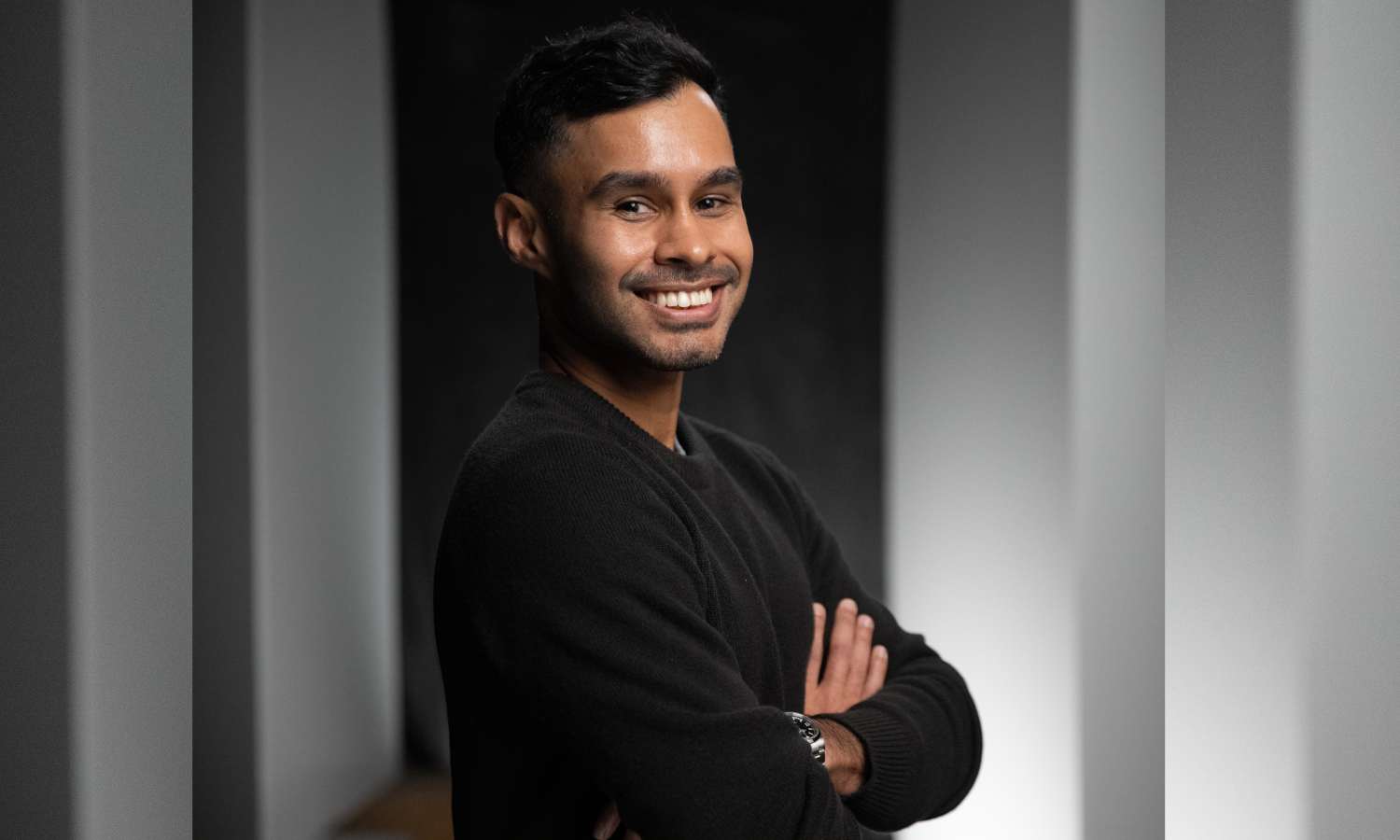
Nisarg Patel, MD, DMD
Chief Resident Physician, Oral and Maxillofacial Surgery
UCSF School of Medicine, UCSF School of Dentistry
Nisarg Patel, MD, DMD, wants to upgrade the operating room.
His plan? To work at the intersection of policy and technology to advance new medicines and surgical care for all.
“My mission is to see and take care of patients every day in the clinic and operating room, write down ideas and concerns that I have about the way the care is being delivered into what I hope is beautiful prose and scholarly research, and then act on what I see to improve health systems innovation both at UCSF and around the world,” said Patel, chief resident physician in Oral and Maxillofacial Surgery at UCSF.
That future includes the use of improved imaging modalities and augmented reality in the operating room, clearer and more effective tools for communication between clinicians and patients, and linking data sources to correlate changes in a patient’s oral health with changes in their overall health.
“When I think about the next 10 years, I often imagine what the operating room of the future will look like and reflecting on the challenges we face today,” he said.
My mission is to see and take care of patients every day in the clinic and operating room.”
Patel’s drive doesn’t stop when he steps outside UCSF, either.
A co-founder of Memora Health, a technology company backed by Y Combinator that automates outpatient communication for government agencies and health systems, Patel has also served on the life sciences investment team at Bessemer Venture Partners. The 2022 Forbes 30 Under 30 honoree has written about health policy and economics for a number of outlets, including the Washington Post, Los Angeles Times, Financial Times, and POLITICO, and was previously a research fellow at the Petrie-Flom Center for Health Law Policy, Biotechnology, and Bioethics at Harvard Law School.
Like others, Patel is excited about the infusion of AI in health care but is cautiously optimistic about how it is applied. “People say that artificial intelligence will get us answers faster,” he said. “I’m more concerned about artificial intelligence giving us better answers, better drugs, better options for care for patients, and smarter decisions in the moment about what we can do for patients.”
Patel received his BS degree in molecular biosciences and biotechnology and BA degree in political science from Barrett, the Honors College at Arizona State University, graduating as valedictorian. He earned his DMD degree and master’s degree in biomedical informatics from Harvard University, where he delivered the Harvard Medical School and Harvard School of Dental Medicine commencement address.
He earned his MD degree from the UCSF School of Medicine.
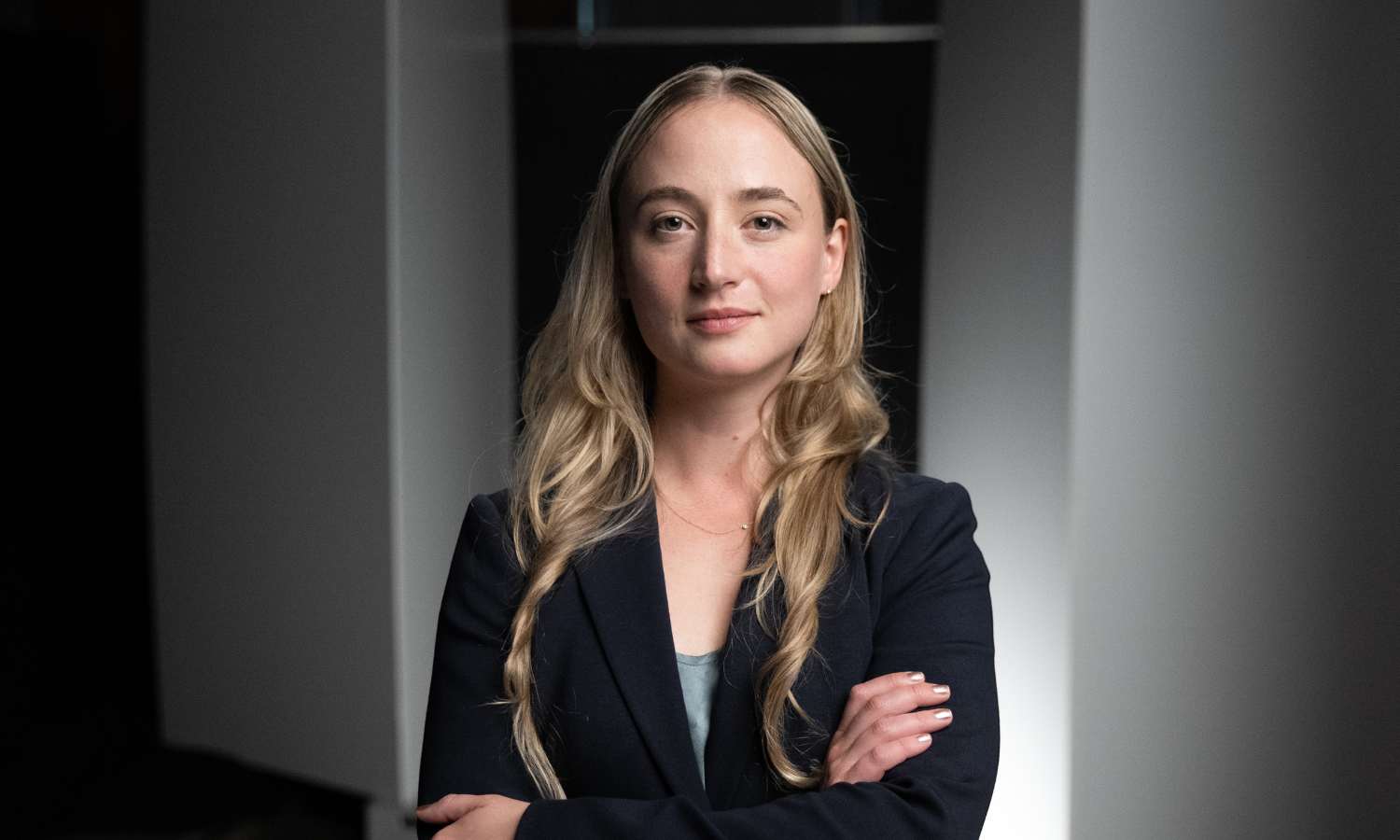
Margaux Pinney, PhD
Sandler Fellow
Principal Investigator of Biochemistry and Biophysics
UCSF School of Medicine
Margaux Pinney, PhD, is laser focused on proteins.
After winning a spot in the five-year Sandler Fellowship Program, the native of Washington state started the Pinney Lab at UCSF, where she and her team study the molecular mechanisms that allow organisms and their proteins to adapt to new and changing environments, and leverage this evolutionary information, along with artificial intelligence, to generate new proteins not found in nature.
“The bottleneck in my field, for a century, has been how slow the experiments have been and long the experiments have taken,” Pinney said. “The technological innovation that we really needed was the ability to do biochemistry at a much larger scale. My lab is really pushing the limits on what we can do here.”
In doing so, Pinney is leveraging an influx of new technologies combined with AI to understand a person’s individual protein sequence and, at some point, predict its properties in ways that can benefit patients.
“Protein function is incredibly important for disease,” she added.
My lab is really pushing the limits on what we can do here.”
Before UCSF, Pinney earned her BS in biochemistry and chemistry from the University of Washington, and her PhD degree from Stanford University’s Department of Biochemistry. She then was accepted to UCSF’s Sandler Fellowship, which brings “exceptionally promising young scientists to UCSF in a special capacity” to start independent research programs with “the sole mandate to do their best science.”
Pinney isn’t one to back down from a challenge.
“I am just very interested in doing hard things,” Pinney said. “I really love challenging problems. I like ones that apply to the real world, to medicine, to the environment and to the outside world. Science is a way for me to incorporate that into my life.”
Pinney credits UCSF’s collaborative and innovative spirit for positioning her team to do what once was deemed unthinkable.
“If you had asked me five years ago whether we could take a protein sequence and predict its function, I would have said that wasn’t possible,” she said. “It’s too complex of a problem. We’re right at that place now where there have been so many advances, that maybe we can actually make this happen. I kind of want to prove the old me wrong.”